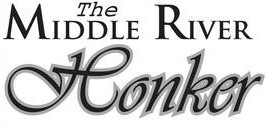The Barn Radio
I am part of a breed that is aging out of existence, to a large extent. I grew up on a dairy farm. There’s a unique set of experiences most of us had on a dairy farm, however one of them recently showed up in my memory - the barn radio.
A dairy barn was once a world unto itself. It was a self-contained place of business and agriculture. Entry into this place required you to be a cow, a cat, one of the people who milked the cows or through the radio waves that delivered you to the barn via the barn radio.
I have worked in radio enough to know that announcers are like a guest to a listener’s life. You are part of an exclusive club when that life is played out in a barn. This is a place few have been and most visitors to our dairy barn did not stay because they knew we were working and very busy. The barn radio delivered a visitor that didn’t keep us from our work, it helped you work.
You get a little isolated in a dairy barn. That barn radio was a tube of information from the outside world. It made you feel like you were still involved in the world even though you were quite removed from it inside that place. It was actually nice to be isolated from the world however listening to weather reports, the Vikings score or some music created a nice balance.
The barn radio was pretty standard; brown, little knobs on the side that controlled the volume and a huge front dial which included all possible station frequencies. There was usually a little whitewash on the radio and some fly specks and the volume knob didn’t always turn the radio off until you tried a couple of times.
I think that what I’m really explaining when I describe a barn radio is the programming it presented. Morning shows, market reports, church services and the news. I remember trying to hurry when I wanted to arrive near the radio in time for a program I wanted to hear.
I love cows but I did not like to milk dairy cattle. It was a repetitive task and I don’t do repetition very well. The early eighties were tough times financially and some milked because they didn’t know what else to do. The radio added variety to life in the barn and broke the tension that occurs when people work closely together who love each other but not what they are doing.
The barn radio was different for me because I knew I wanted to be the person who was invited for occasional barn visits instead of the one who milked the cows. It was like listening to the future for me and I wondered how long until I could enter into that box and introduce the church service done in Norwegian or read the news or describe the football game. As it turned out, I would spend very little of the next few decades in either a dairy barn or inside that little barn radio box. However, each visit was remarkable and was like coming home.

